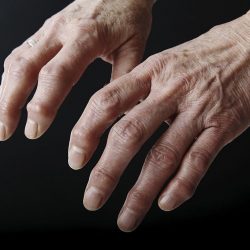We speak of dizziness when the patient complains of a feeling of lack of balance in space . Knowing that, in practice, we are often confronted with false vertigo. It is therefore necessary to make a nosological diagnosis in order to know the origin of these vertigo.
Whether they are of central origin (neurological cause), of Menière of vestibular origin (rotary vertigo with nausea, vomiting, ringing in the ears or deafness), menièriform , post-traumatic (subjective syndrome of head trauma), for example Neuro-vegetative dystonia , by cervical arthritis or even by atherosclerosis and arterial hypertension , we will describe in this article homeopathic medicines of symptomatic action as well as field medicines .
Symptomatic drugs
They are taken daily in the event of recurrent vertigo and on a daily basis in the event of isolated vertigo or paroxysmal crisis .
Bryonia :
This medication corresponds in fact to dizziness aggravated by the slightest movement of the body or the head , especially in the morning when sitting on the bed.
Chenopodium anthelminthicum :
It will be indicated in the face of sudden Menière’s vertigo , with secondary deafness, in an often migraine subject presenting pain in the hepatic region.
China :
Indicated in dizziness with ringing in the ears in tired hyperesthetic subjects , often occurring against a background of anemia .
Chininum sulfuricum :
This strain is suitable when we find: dizziness, tinnitus and deafness .
Cocculus :
Dizziness is accompanied by nausea, vomiting and lipothymic discomfort not improved by fresh air; they are triggered or worsened by fatigue or by car travel.
Conium maculatum :
The subject complains of an impression of rotation of objects , of a feeling of vertigo when lying down and of an increase in any rotation of the head .
Salicylicum acidum :
Gyrating vertigo is accompanied by hearing loss and buzzing. Other salicylated derivatives have a very similar pathogenesis: Natrum salicylicum, Chinicum salicylicum .
Tabacum :
The drug is suitable for dizziness accompanied by nausea with pallor, cold sweats and syncopal state . Symptoms improve with closing eyes and fresh air.
Dosage : All these drugs will be taken from 5 to 9CH, one to several times a day, depending on the clinical case.
Dystonic drugs
In the treatment of this ground, one will recall the importance of Ignatia , Moschus and Nux vomica . Other drugs are more specific for vertigo:
Argentum nitricum :
The “vertigo” occurs in a context of agitation, precipitation, phobic neurosis (in particular vertigo of heights). It can be accompanied by tremors and headaches.
Gelsemium :
Vertigo is accompanied by blurred vision, tremors , anxiety with clouding, vasomotor and sympathetic signs.
Lachesis :
Vertigo can be triggered by claustrophobia . The diagnosis is made mainly on the general signs of the patient: hyperesthesia, improvement by a discharge.
Phosphoricum acidum :
Vertigo is accompanied by malaise in a context of asthenia, headaches on intellectual effort, or it follows a serious emotional shock .
Dosage : Take 9 to 30CH, every day to once a week.
Drugs for arthritis and post-traumatic dizziness
Arnica :
This drug is suitable in all the consequences of trauma . It also finds its indication in microtraumas due to arthritic deformities.
Natrum sulfuricum :
It is the homeopathic medicine for the subjective syndrome of head trauma . It is also indicated in a context of joint pain very aggravated by humidity in subjects presenting the sycotic reaction mode.
Dosage : These two drugs can be taken every day from the 9th to the 30th CH, depending on the similarity.
Actaea racemosa :
Patients complain of “dizziness”, a feeling of a head in cotton wool, neck pain or upper back pain . In women, these symptoms get worse during the period.
Dosage : Take in 9CH, 5 daily granules during the second part of the cycle.
Vascular field drugs
Baryta carbonica :
Vertigo, clumsiness, poor coordination occur in a context of arterial hypertension in an intellectually slow subject with little memory.
Phosphorus :
Suitable for dizziness in the elderly , with cerebral circulation disorder. They are aggravated by changes in position.
Dosage : Depending on the case, these drugs will be taken from once a day to once a week, from 9 to 30CH.
Field drugs targeting general health
Depending on the overall reaction mode, the general behavior and the typology, the prescription will most appeal to drugs such as Natrum muriaticum, Sulfur, Sepia, Lycopodium , etc.





